Economic Policies and the Travel Industry: An Analysis of Impact
VerifiedAdded on 2023/03/24
|6
|461
|40
Essay
AI Summary
This essay examines the influence of economic policies and sponsor bodies on the travel and tourism industry. It highlights the relationship between economic activities, political changes, and the attractiveness of a country to tourists. The essay also discusses the role of local, regional, and international agencies, such as the World Tourism Organization (WTO), in supporting and regulating the tourism sector. Furthermore, it emphasizes the importance of local and regional levels in tourism development and considers the potential impact of EU policies on UK tourism. The essay references several academic sources to support its analysis of these factors.
1 out of 6
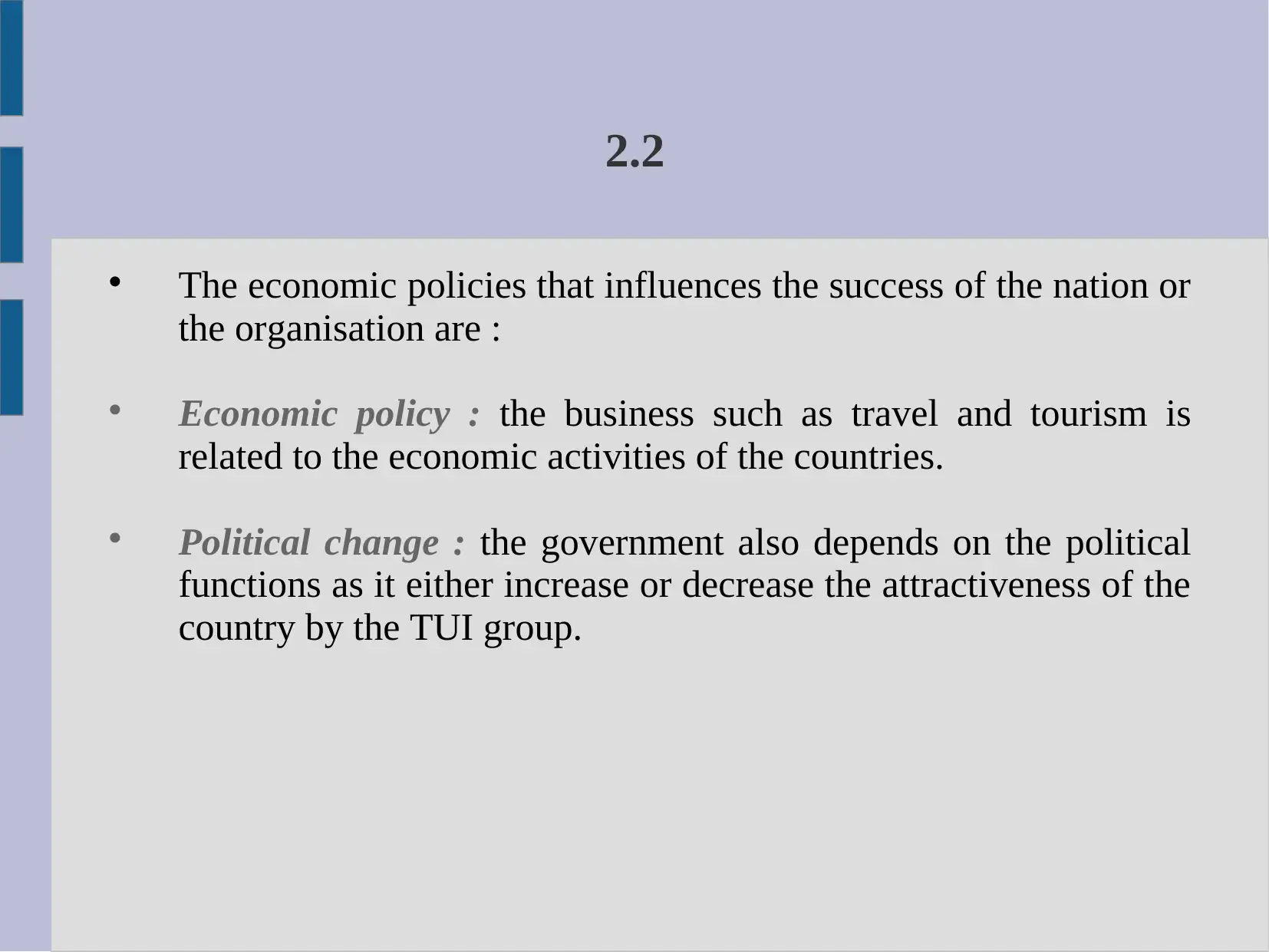
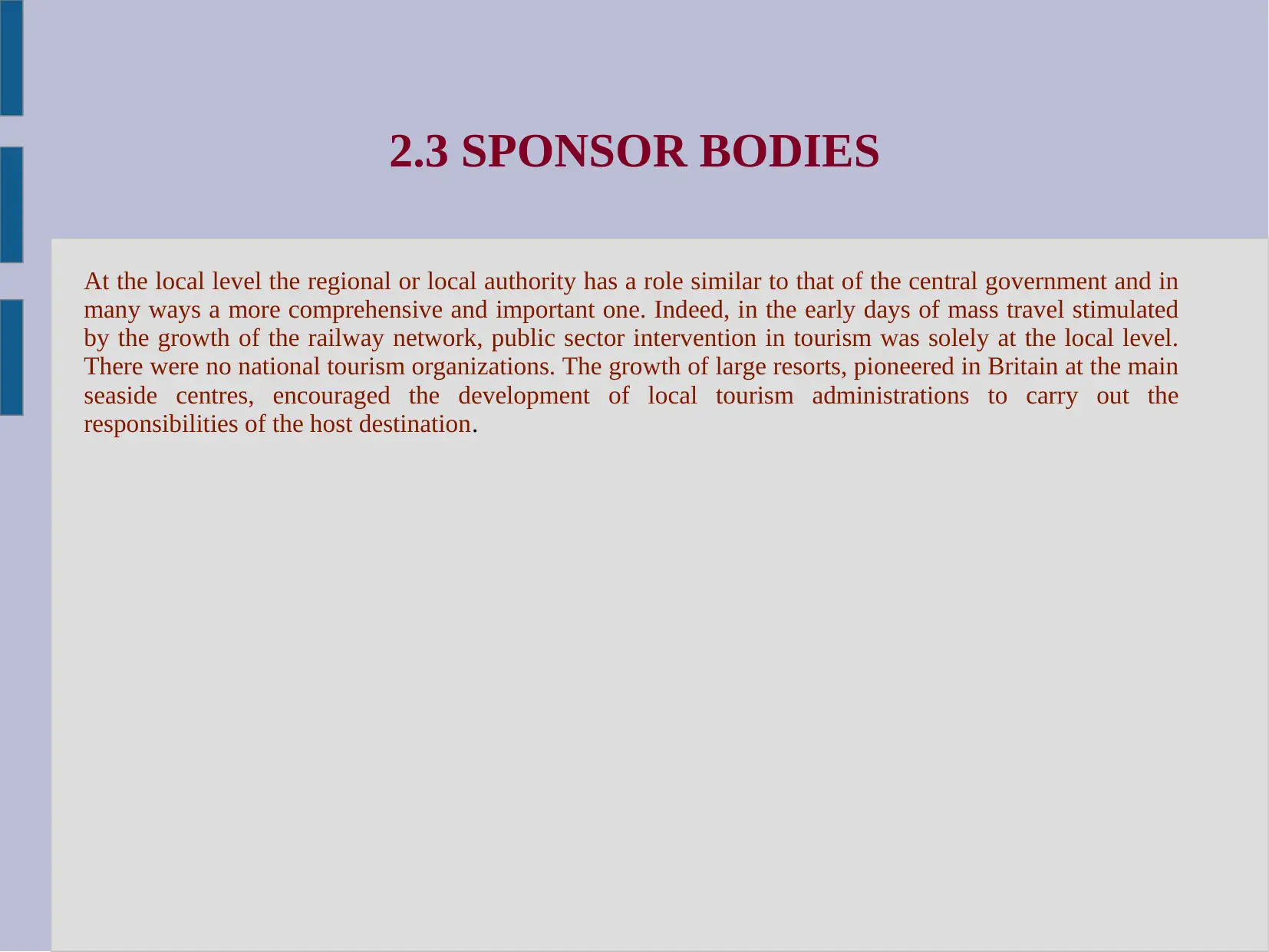
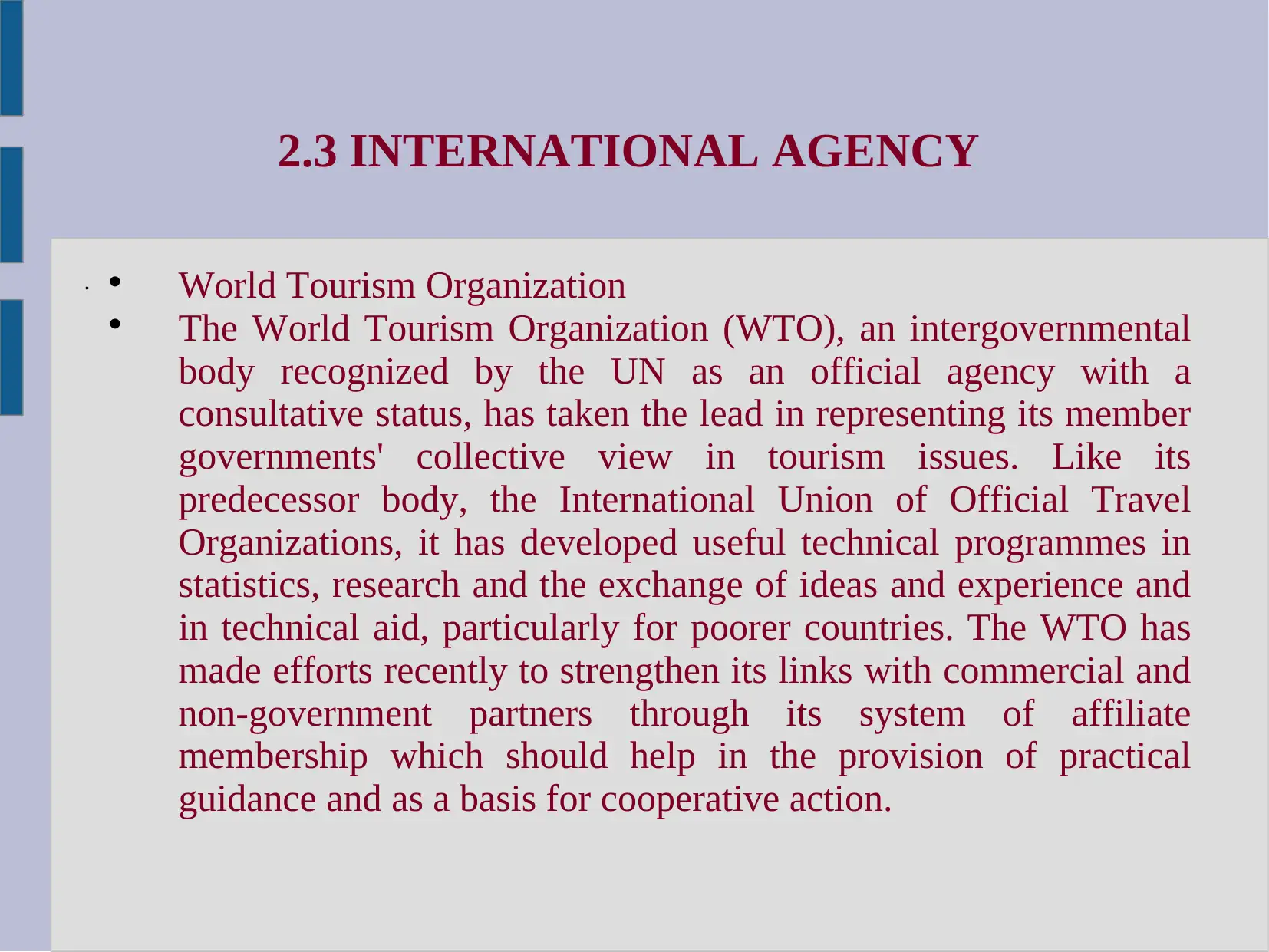

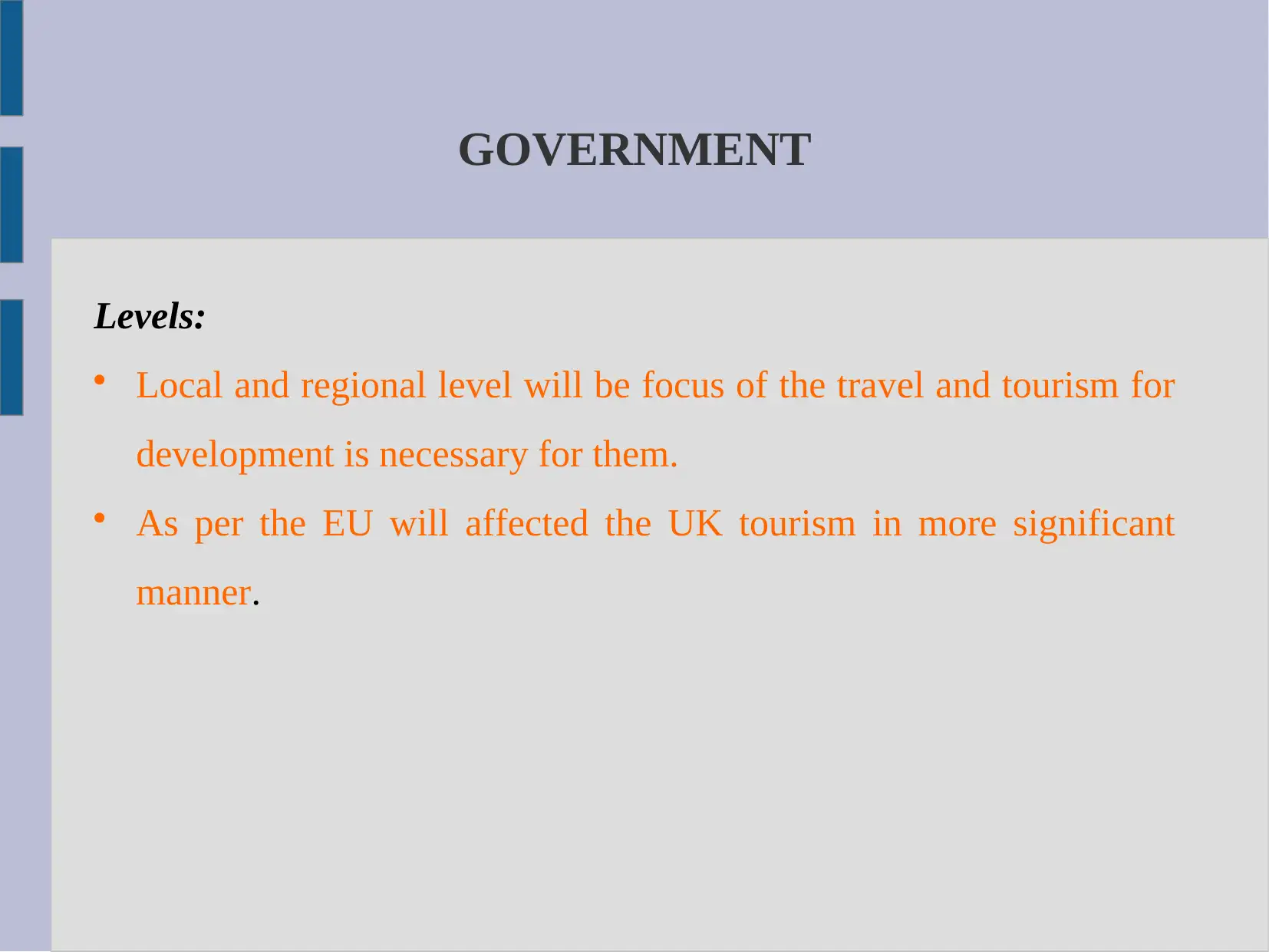
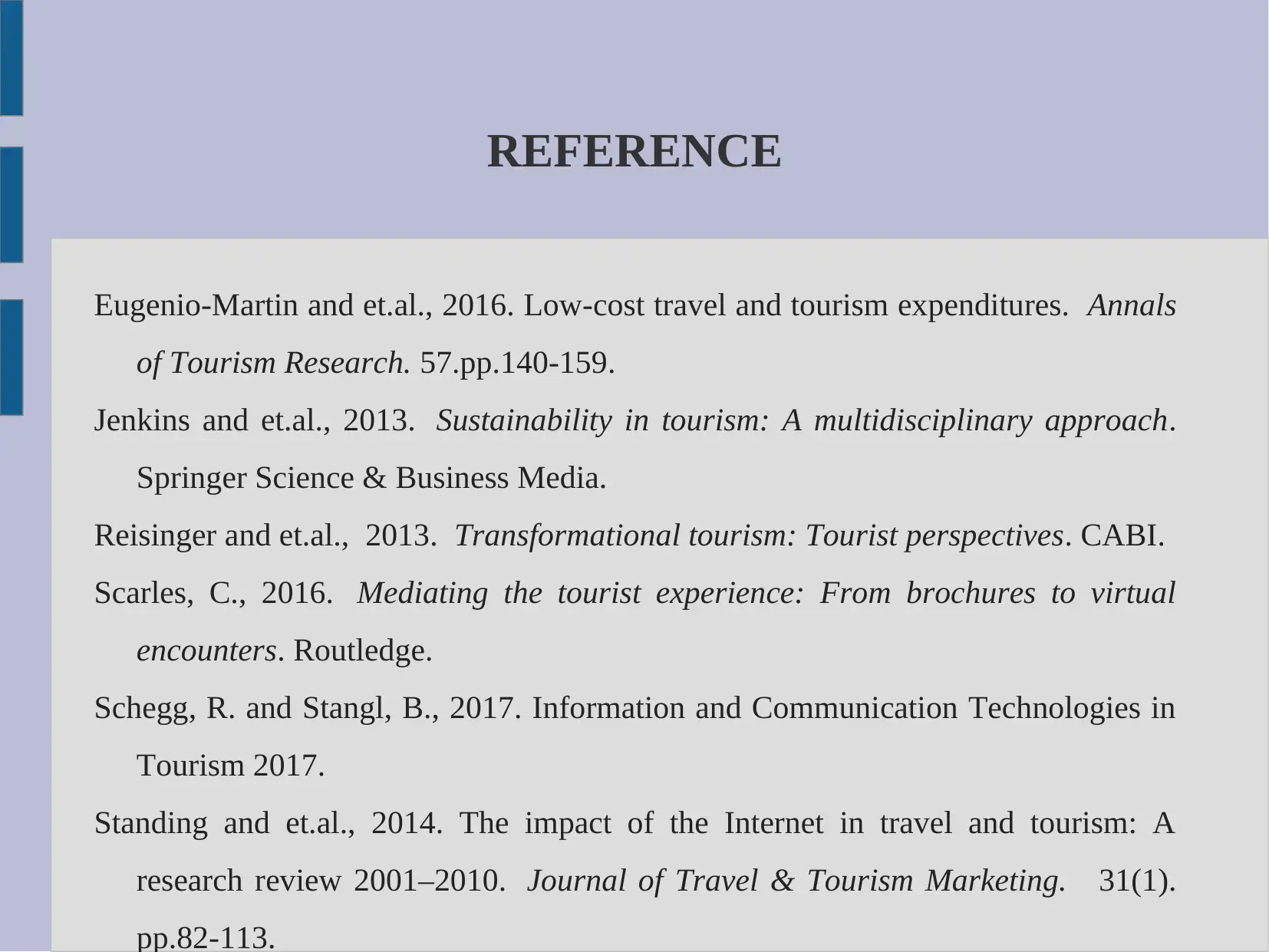







![[object Object]](/_next/static/media/star-bottom.7253800d.svg)